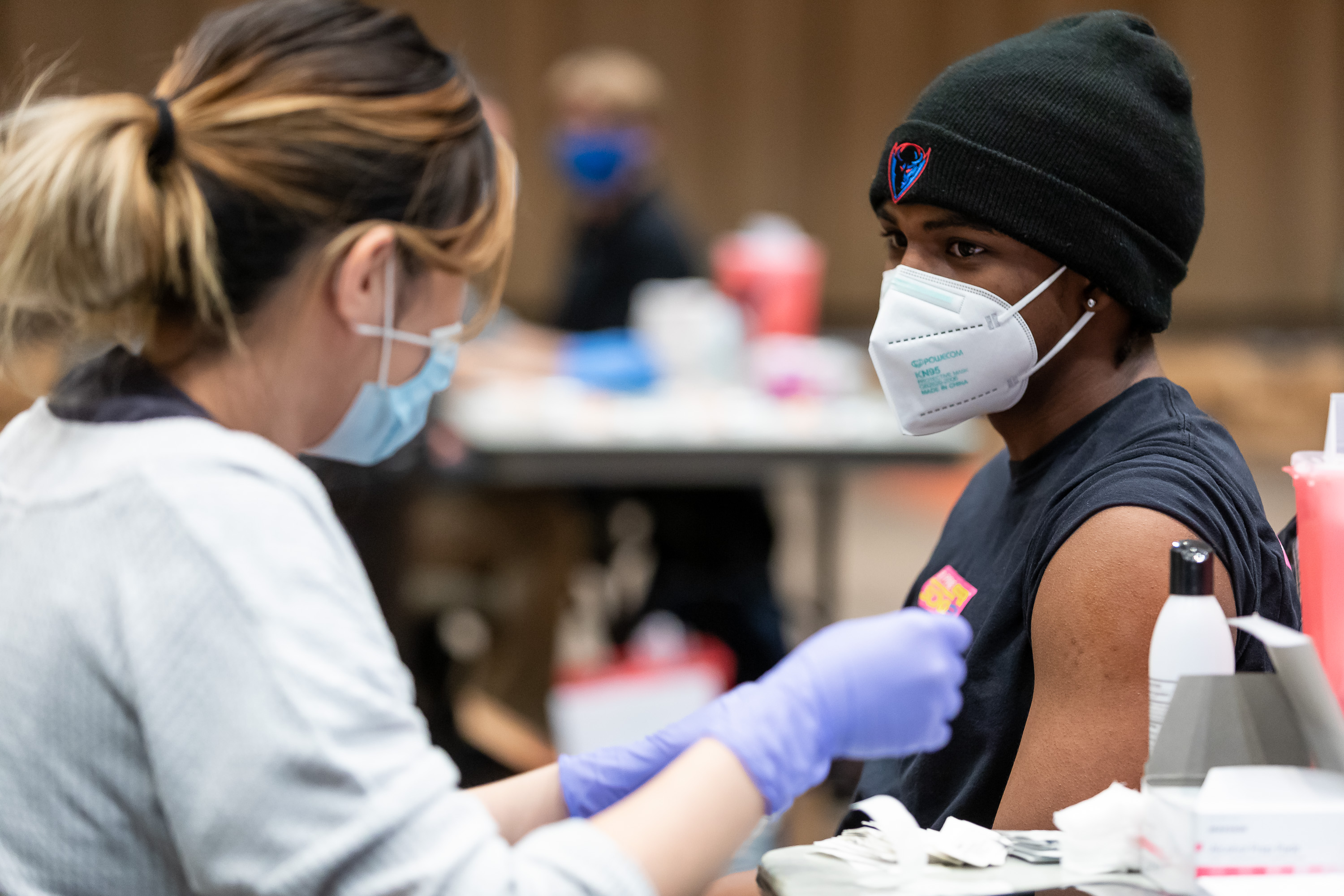 To Take Care, DePaul, the university is asking everyone to consider getting the COVID-19 vaccine. To help with the decision, DePaul lists five of the most common myths about the vaccine and debunks them with the latest science-based information. (DePaul University/Jeff Carrion)
To Take Care, DePaul, the university is asking everyone to consider getting the COVID-19 vaccine. To help with the decision, DePaul lists five of the most common myths about the vaccine and debunks them with the latest science-based information. (DePaul University/Jeff Carrion)
After more than a year into the global COVID-19 pandemic, three vaccines are now approved in the United States and
widely available to the entire nation.
While many may have jumped at the chance to get the vaccine to help protect themselves and others, some may still be concerned about the vaccines' efficacy and safety. To help the DePaul community and their social networks with this decision, here are five of the most common myths about the COVID-19 vaccine and the latest science-based information debunking them.
Myth #1
Because the COVID-19 vaccine is only approved for "emergency use," it is an experimental vaccine.
Myth #1 Busted
The term "emergency use" is a mechanism to facilitate the availability and use of medical countermeasures, such as vaccines, during public health emergencies, like the COVID-19 pandemic.
The U.S.-approved COVID-19 vaccines are not experimental. The mRNA technology that is in the U.S.-approved COVID-19 vaccines has been around for nearly 30 years. To learn more about mRNA, visit the Centers for Disease Control and Prevention's (CDC) website.
Additionally, the U.S.-approved COVID-19 vaccines went through a rigorous development process. Typical Phase 3 vaccine trials require 1,000 to 10,000 people. The COVID-19 vaccine Phase 3 trials included 65,000 people from a broad range of demographics. For more information on Emergency Use Authorization, visit the
Food and Drug Administration website.
Myth #2
Getting the COVID-19 vaccine will cause people to shed, release or discharge the live COVID-19 virus to non-vaccinated people, potentially infecting them with the virus.
Myth #2 Busted
According to the
CDC, in order to release or discharge any of a vaccine's components, the vaccine must contain a version of the virus. None of the COVID-19 vaccines authorized in the United States contain the virus; each contains only portions of the RNA or cell coat.
Therefore, a COVID-19 vaccinated person cannot infect others.
Myth #3
The vaccine affects fertility.
Myth #3 Busted
The
American College of Obstetricians and Gynecologists states, "If you are planning or trying to get pregnant, you can get a COVID-19 vaccine.
There is no evidence that the COVID-19 vaccines cause infertility. You also do not need to delay getting pregnant after you get a vaccine."
Myth #4
People who already had COVID-19 have antibodies and therefore don't need to get the vaccine.
Myth #4 Busted
Regardless of whether you already had the virus,
you should get the vaccine because experts do not know how long you are protected from getting seriously ill from the virus again.
According to the CDC, “The risk of severe illness and death from COVID-19 far outweighs any benefits of natural immunity."
Myth #5
Getting the vaccine isn't worth it because of the side effects.
Myth #5 Busted
Yes, side effects from the vaccine are common and vary person to person, but
in the long run the vaccine will help protect you from the virus. A vaccine teaches our immune system how to recognize and fight a virus. Sometimes, during that process, symptoms such as fever can arise. These symptoms are normal and are signs that the body is building protection against the virus that causes COVID-19.
The risk of death from COVID-19 is 1 to 2 percent. The risk of death from a COVID-19 vaccine is 0.0017 percent.
For more information about DePaul's safety efforts to protect against the spread of COVID-19, please visit the university's
COVID-19 Updates and Guidance website.